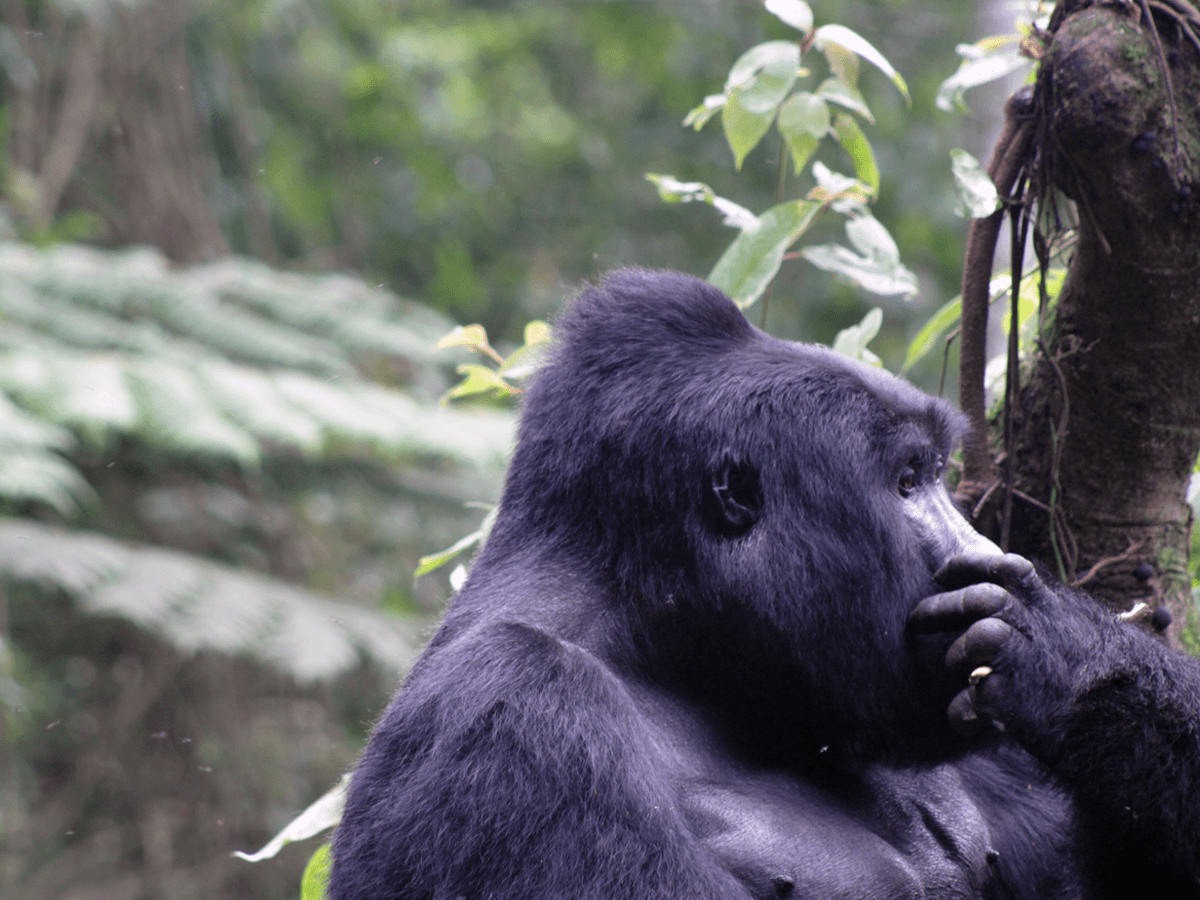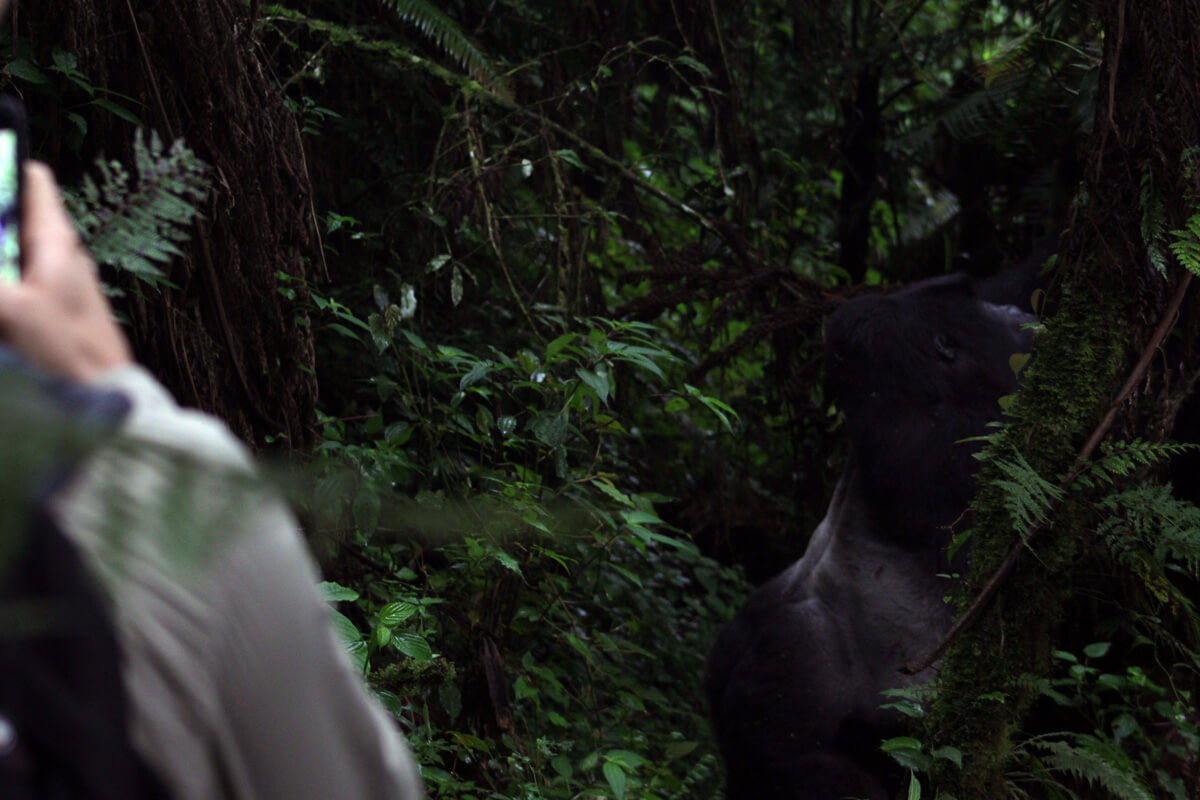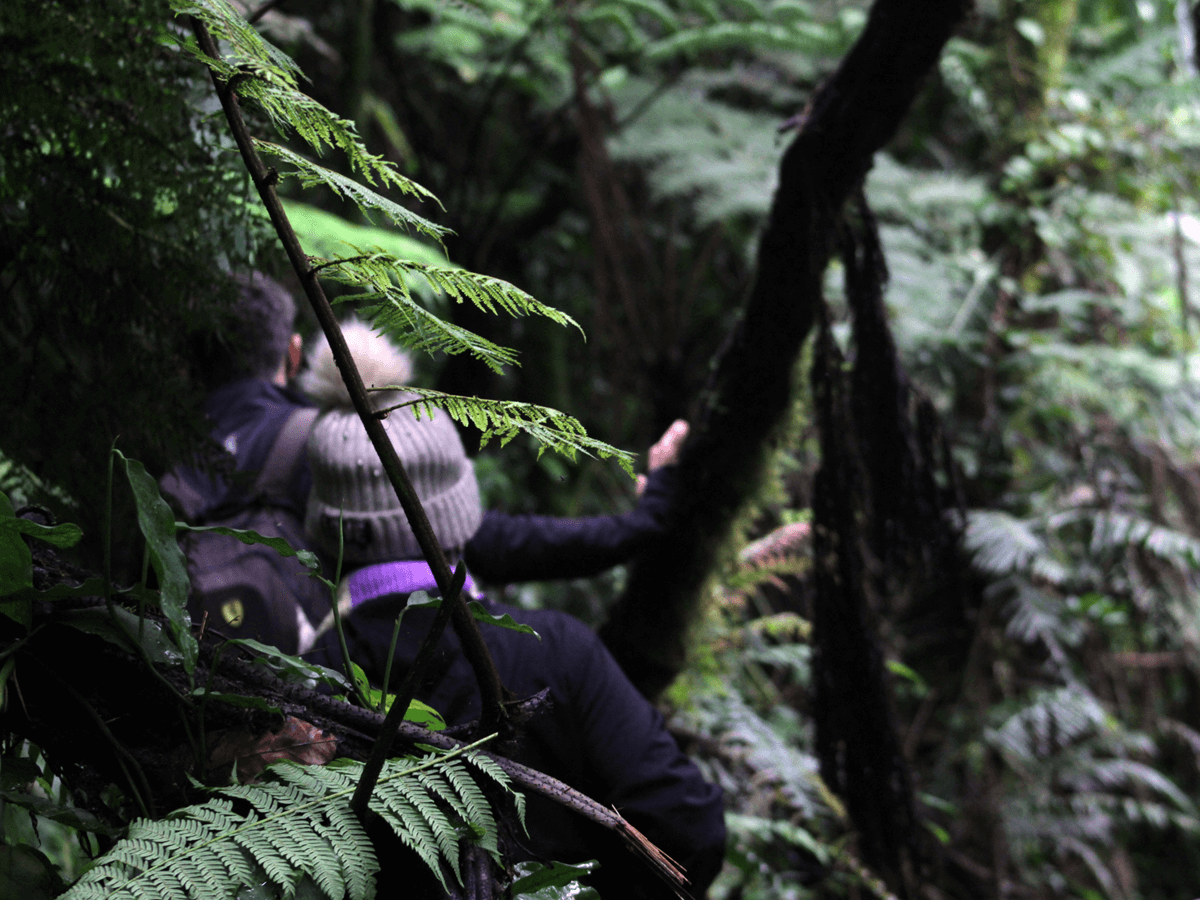Seeing mountain gorillas in their wild natural habitat is among the most sought-after African safari experiences.
The fact that a limited number of people is allowed access only serves to increase the demand, and add to how special and personal the experience is.
Before you can book a trip to see mountain gorillas in Uganda, Rwanda, or D.R. Congo, some regulations determine your eligibility. If you are unable to meet these eligibility needs, you will not be able to see the gorillas.

This article will help you learn all that is needed so that you can be able to enjoy your own experience with the gorillas.
What You Need For Gorilla Trekking
1. You Must Be 15 Years Or Older
The biggest restriction to gorilla trekking is age. This is strictly enforced as you must show your passport before the beginning of the gorilla trek into the forest. You must be 15 years and older to be able to see mountain gorillas in their natural home.
This often affects people who would want to travel as a family and share the experience with their children or grandchildren. The strict rules for seeing gorillas and the possibility of disease transmission are why younger children are not allowed to see gorillas in the wild.
This is to protect both the children and the gorillas. Furthermore, gorillas are still wild animals and the unpredictable behaviour of children could trigger their wild side.
2. You Must Be Free Of Transmittable Diseases
Gorillas share around 98% of our human DNA. This means they can easily catch many human diseases from the visitors who are seeing them.
If you have any transmittable or communicable diseases such as flu, cough, or diarrhoea you will not be allowed to see the mountain gorillas.

The reason for this is strictly conservational, as such communicable diseases could very easily spread through the entire population and kill many gorillas. In the same way, you will keep a safe distance from the animals, and sneeze in the opposite direction of the gorillas, among other health regulations.
Related article: How to stay healthy on an African Safari
3. You Need A Fully Paid Gorilla Permit
With so much demand for gorilla trekking, everyone must have a fully paid-for gorilla trekking permit before they can see the mountain gorilla in the wild.
Gorilla permits are sold directly by the responsible government bodies in Rwanda, Uganda, and DR Congo. Your chosen tour operator can purchase the permit on your behalf but you can also buy it directly on your own.
Gorilla permits are only valid for a single day of trekking in a given area. Make sure not to confuse these details as you could miss out because of this.
4. Good Physical Condition
Another big factor in your mountain gorilla encounter is your physical fitness. Gorillas live in mountainous areas with steep slopes, and thick rainforests and they are always on the move.

The only way to get to these gentle giants is by foot, and the hike is really serious and exerting - rewarding as it is.
It is, therefore, necessary that you can hike the steep slopes up and down for anything between 1 hour to 4 hours.
People who cannot manage the toughest hikes are usually guided to the nearest group in the given area. If you would like a simpler hike, talk to your safari company to have this in mind early enough and choose the slightly simple tracking zones.
Even the easier tracking zones are "not a walk in the park", and you will be breathless faster than expected. The physical demands notwithstanding, the experience is still wonderful and we highly recommend it.
Gorilla Trekking For the Elderly & Disabled
For older people who might not be able to handle so much of the physical demands, a much easier tracking zone can be arranged.
People who are disabled have been able to get their encounters with gorillas too. This is by getting an extra service organized - where local porters are hired to carry someone as they sit on a stretcher-like chair.
This can also be done for older people who would have difficulty navigating the thick forest on their own. If you or someone you plan to travel with might find great difficulty in navigating the forest due to old age or disability, you should talk with your travel consultant so that all the arrangements are made with this in mind.
Additional
6. Yellow Fever Certificate
Before travelling to Uganda, a yellow fever certificate is required for people who are coming from countries where yellow fever is endemic. This is often a requirement as you are entering the country and not at the point of tracking gorillas.

While recent years have seen this being relaxed as per the World Health Organisation classification, Yellow fever is a disease that spreads fast and has no cure.
If you are travelling to many places, it comes in handy. Plus you only have to ever get vaccinated once.
Related article: Vaccinations for going on an African safari
Closing Thoughts
The excitement of being able to see gorillas shouldn't blind you to the strict requirement which is put in place to protect the mountain gorillas.
As we all experienced with COVID-19, transmittable diseases can very quickly change the world as we know it. Unfortunately for gorillas which are just over 1000, this could wipe out their entire population.
These regulations are strictly enforced and we hope that you are now well informed and ready to undertake your adventure while being safe and sustainable.
Any concerns you have should be raised early on and answered to your satisfaction well before your trip starts. You can reach out to any of our trusted operators in Uganda and Rwanda for assistance regarding your gorilla trekking safari.
Related Articles
- Common Questions about gorilla tracking [Answered]
- Interesting facts worth knowing about gorillas
- Where to see gorillas in the wild
- Gorilla trekking rules & guidelines
